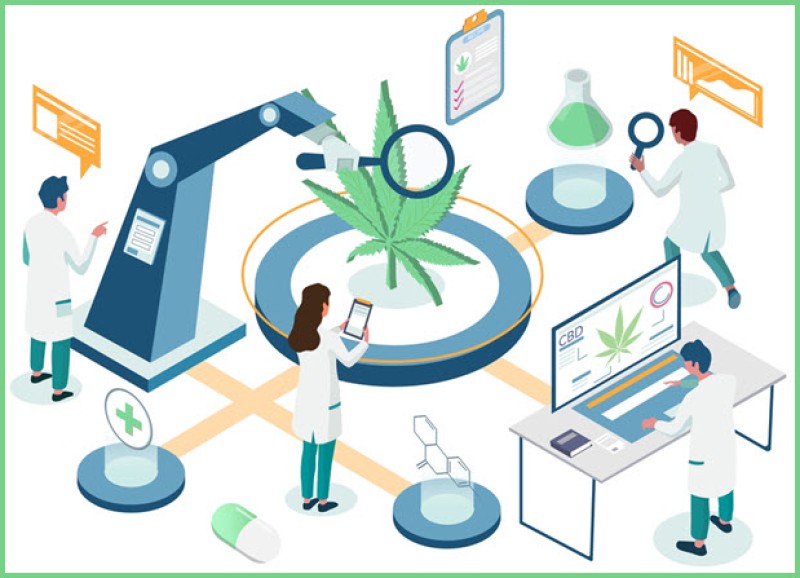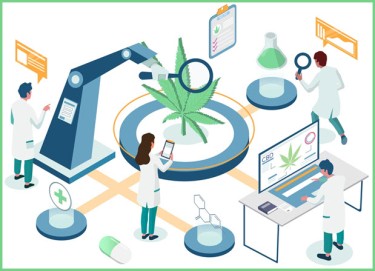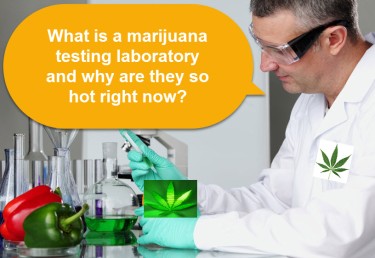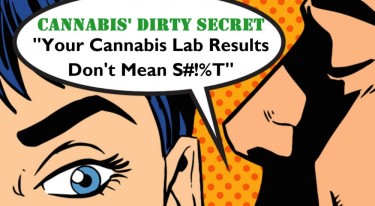To address issues related to cannabis testing and laboratory inconsistencies, California has developed standardized cannabis testing. This standardized process will be established throughout the state's 41 active cannabis testing facilities. With all fingers pointing to the California regulators being responsible for this new push. They will ensure that standardized testing eliminates all inconsistencies among the marijuana labs.
What Transpired
For some time now, industry officials across the industry have alleged that some cannabis businesses are cutting corners. They believe some processors, manufacturers, distributors, and/or growers shop for labs that will provide the results they want as regards contaminants and THC potency.
Many critics also believe that the lack of a general standard is part of the factors plaguing the cannabis testing industry. Without proper standards, consumer confidence in cannabis products remains threatened, making it difficult for several labs to compete.
The New Initiative
The initiative is established under the new state law known as Senate Bill 544. This law was signed into act by Governor Gavin Newsom in October 2021. It demands that the Department of Cannabis Control (DCC) establish stringent guidelines and criteria for testing dozens of cannabis compounds, residual solvents, pesticides, and microbiological contaminants.
The DCC has been mandated to establish a standardized cannabis testing method and operating strategies that labs across the state will use by Jan. 1, 2023. According to a longtime industry entrepreneur and advocate Jozee Roberto, the initiative will bring about consistency which the industry needs at this time.
D’Angelo Roberto, the husband of Jozee Roberto and a prominent figure in the cannabis industry, also made some interesting statements. He asserted that standardized cannabis testing will save plenty of small businesses that would have been otherwise decimated from false positives. For instance a false positive might suggest the presence of a banned pesticide in a cannabis product, causing producers to discard such products.
Kenny Morrison, the president of the California Cannabis Manufacturers Association and founder of VCC Brands affirmed this. He said his products have received false-positive test results more than once. Morrison also claimed that in most cases, labs refuse to inform legislators and regulators of their errors for fear of further regulations or penalties.
Kenny Morrison believes standardized cannabis testing is the way to go. He explained what an awful situation it is where manufacturers and brands know they are receiving less-than-accurate service. He also hopes to see the state law evolve further to allow sampling and testing to be performed where products are being produced. Presently, testing and sampling are carried out at the distribution site in accordance with the current legislation.
Morrison claims that if testing and sampling are done at the production site, there won't be a need to move pallets of products around. Hence, freight charges are greatly reduced. However, not everyone shares the same ideology as Morrison regarding the new initiative. Many worry that more regulations and requirements will increase costs while limiting competition and services.
Josh Wurzer, the co-founder, and president of Santa Cruz-based SC Labs believes standardized cannabis testing will limit innovation. He claimed that there's always the need to adapt testing to meet the ever-changing market. Citing an example, Wurzer mentioned the introduction of delta-8 into the market which prompted its addition into their cannabinoids panel. According to Wurzer, compelling a standardized method would limit innovation which is prompted via competition in the market.
Why It Matters – Improving Quality Standards
According to Christina Dempsey, spokeswoman for the Department of Cannabis Control (DCC), standardized testing will bring extra accountability and consistency to licensed cannabis testing labs. She also claimed that the standardized process will enable laboratories to easily recognize and correct issues. Thus, serving as an additional instrument to guarantee integrity.
The DCC has appointed two state-run laboratories to create operating systems that will become a blueprint for other cannabis testing labs across the state. This directive was prompted by a recent state law compelling all cannabis regulators to validate procedures and testing. This will ensure that labs provide valid and precise results with testing operations being more transparent.
With the new state law, California joins a few other states that have standardized cannabis testing processes including New York and New Jersey. In California, the DCC’s Laboratory Services Division is overseeing the program. This division has about two dozen staff running the Cannabis Testing Laboratory and also regulating the state's lab via inspections and licensing.
The division in partnership with the University of California is establishing a reference laboratory and will be one of the two state-run labs. Dempsey asserted that these two labs will promote accountability by validating lab results. Not just that, initiatives like challenge tests will also be established to ensure accountability.
Lab shopping, and other challenges
All marijuana testing labs across California will be mandated to establish the DCC's operating techniques. Advocates claim this will help reduce lab shopping.
According to Wurzer, clients and businesses have always wanted accurate and valid data basically for marketing purposes. However, when testing regulations were first initiated in 2018, clients started lab shopping. Clients started demanding test results to show their products have a higher percentage of THC. This was so because businesses didn't feel this present kind of pressure to return high-THC results as they do now. And for a lot of cannabis consumers, the higher level of THC has become a purchasing trigger to buy more.
As more consumers look to buy higher THC counts, the industry evolved to suit. And according to industry officials, this encouraged some distributors to lab shop. Presently, under state law, distributors are now required to be intermediaries between cultivators and dispensaries. They are also directed to set up testing and hold investors until all testing is done.
Bottom Line
Jeffrey Raber, an organic chemist who established one of the first marijuana testing labs in California also had some things to say. He acknowledges the initiative of standardized methodologies and cross-validation and claims it will help root out bad actors and validate lab results. Raber said the lab game will greatly improve with standardized testing but the industry still needs so much help.
MARIJUANA TESTING LABS AND IDEAS, READ MORE...
MARIJUANA TESTING LABS ARE HOT RIGHT NOW, BUT WHAT ARE THEY?









